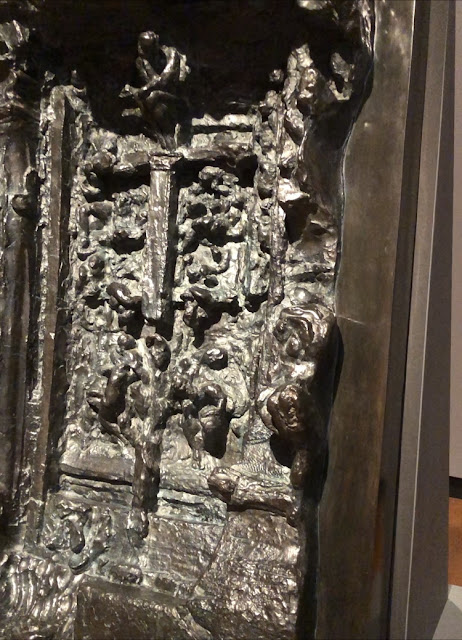We love the world too much; God too little; our neighbor not at all, or for our own ends.
I didn't mean to read The Anatomy of Melancholy all the way through at once. I was going to dip in and out of topics and just kind of meander through some pages like a dictionary or encyclopedia. But I accidently read the whole thing. It was that enjoyable I started and just kept reading.
Every morning with my coffee and journal, I would read just a couple pages. I would follow the tangents that Robert Burton would go on, which would last for pages, and sometimes the next day I would continue on that same tangent. I try to put my finger on what this book is to describe it: is it a dictionary? A journal? A research project on love, morals, and ethics? Inspirational and motivational reminders of Biblical truths? A book of quotes and poetry from ancient wisdom? Tales of woe from those who stray? Thoughts and musings from the author on various topics of health, food, exercise, reading, studying, and magic? A big book of lists?
Well, it's all of the above. Mashed into one giant book weighing in at about 1,080 pages. It's a mammoth collection of Robert Burton's thoughts and quotes from ancient sources that I often wondered how he had access to. Was he making some of this up? Latin quotes fill some of the paragraphs, which thankfully he almost always translates.
In avoiding errors, fools rush to the opposite extremes.
Whether he was making some of this stuff up, it doesn't really matter. In one tale he tells he actually states at the end that it doesn't matter whether the story is true, it plays the role to tell a truth he wanted to tell. I laughed often whilst reading passages, sometimes because of archaic language not used anymore, sometimes situations are just humorous. It was not only entertaining and informative, it was interesting to read from the perspective of his time in Oxford (he lived there all his life). Published in 1621 (400 years ago!), there are bits of history and politics mixed into his perspective. And indeed, his religious life is the undertone of the whole book.
The chief thing we respect is our commodity: and what we do, is for fear of worldly punishment, for vainglory, praise of men, fashion, and such by-respects, not for God's sake. We neither know God aright, nor seek, love, or worship him as we should. And for these defects, we involve ourselves into a multitude of errors, we swerve from this true love and worship of God: which is a cause unto us of unspeakable miseries; running into both extremes, we become fools, madmen, without sense, as now in the next place I will show you.
I think Robert Burton would have been a hoot to hang out with and talk to. Historic notes from people he associated with noted how friendly and pleasant he was to be around. While he says he wrote this book to keep himself out of despair and melancholy, he states very simply that the solution for melancholy is "be not solitary, by not idle". Writing this book was his way of fulfilling those pieces of advice. I imagine he walked around Oxford conversing with all kinds of people gathering stories and ideas for entering into his book later, because he kept adding to this book once it was published.
He who blends the useful with the charming wins every vote.
He offers sections that are symptoms of melancholy, showing us that we all have the tendency to fall into such a state. He has subsections and tangents. Then, he has a cures section that attempts to encourage ways to resolve the issue at hand -
For if thou dost not ply thy book,
By candlelight to study bent,
Employ'd about some honest thing,
Envy or Love shall thee torment.
In other words, stay busy, keep focused, work on something that is worth paying attention to. This is a cure for love melancholy, which comprises a whole section in the book. The spiritual battle that we all deal with on different levels. Following Plato, calls these two loves, two Devils, or good and bad Angels according to us, which are still hovering about our souls. The one rears to heaven, the other depresseth us to hell; the one good, which stirs us up to the contemplation of that divine beauty, for whose sake we perform Justice, and all godly offices, study Philosophy, &c., the other base, and through bad, yet to be respected; for indeed both are good in their own natures...
It was a pleasure to accidentally read the whole of The Anatomy of Melancholy. I will revisit this book very often. I underlined so many passages and made notes everywhere. It is most certainly a top favourite book of mine, and sits at a ready stance on my shelf; easy to grab and linger over.
















